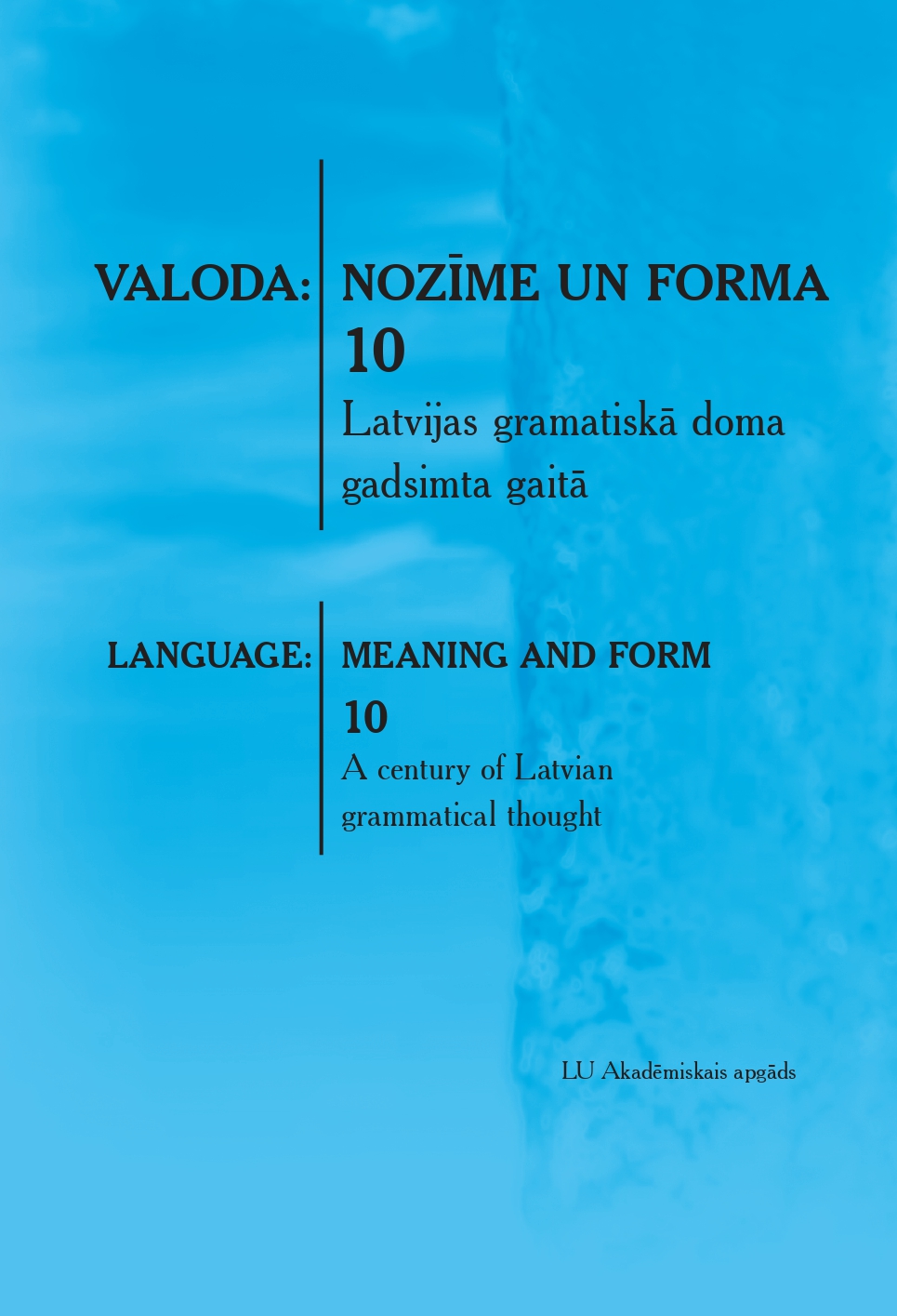Latviešu un lietuviešu valodas atgriezeniskie darbības vārdi: terminoloģiskais aspekts
Reflexive verbs of the Latvian and Lithuanian languages: a terminological aspect
Author(s): Regīna KvašīteSubject(s): Morphology, Syntax, Lexis, Semantics, Comparative Linguistics, Baltic Languages
Published by: Latvijas Universitātes Akadēmiskais apgāds
Keywords: reflexivity; terms; reflexive verbs; non-reflexive verbs; reflexive formants; Latvian language; Lithuanian language;
Summary/Abstract: The term reflexivity names a formal feature that unites a lexical grammatical group of reflexive verbs. The aim of the research is to find out the terms used in various Latvian and Lithuanian sources, such as dictionaries, grammar books, scientific and instructional literature, to describe such verbs and verb-building. Two compound terms of different origin are popular in the works of Latvian linguistics: a three-word term of own language, atgriezeniskais darbības vārds, or a two-word term of foreign origin, refleksīvais verbs ‘reflexive verb’, (to note, endings of a secondary component can be both pronominal and non-pronominal in practice). In Lithuanian, such verbs are also called by synonymous compound terms encompassing a secondary component of different origin: sangrąžinis veiksmažodis and refleksyvinis veiksmažodis ‘reflexive verb’. The descriptions of reflexive verbs demonstrate the diversity of the terms to name the means that built them. In Latvian, atgriezeniskā galotne ‘reflexive ending’, is the most frequently used term; however, the sources display other ones, too: atgriezeniskais afikss ‘reflexive affix’, atgriezeniskais formants ‘reflexive formant, reflexive formative’, atgriezeniskā morfēma etc. In Lithuanian, this notion is named by the terms sangrąžos dalelytė ‘reflexive particle’ (cf. dalelytė in Latvian grammar terminology corresponds with a term partikula, ‘particle’) and sangrąžos afiksas ‘reflexive affix’. It was observed that the character of a formant or the position of it is emphasised in both languages, for example, in Latvian there is postpozitīvs formants ‘postpositive formant’, and in Lithuanian there is galinė morfema ‘end morpheme’, postfleksinė pozicija ‘post-flexion position’. The comparison revealed that the terms naming distribution of verbs into non-reflexive (in Latvian such verbs are called using a term tiešie ‘direct verb*’ (in the Dictionary of Latvian Terms it is given with an asterisk because it is a word-for-word translation, perhaps, there is no tradition in the English language)), and reflexive (in Latvian they are called atgriezeniskie ‘reflexive’) differed.
Journal: Valoda: nozīme un forma
- Issue Year: 2019
- Issue No: 10
- Page Range: 92-105
- Page Count: 13
- Language: Latvian

